It’s time for a new season and it’s time for a new book! We’re starting Anne Lamott’s Bird by Bird. This is the writing process book that everyone has heard of, and, given that it’s funny and self-deprecating, it’s probably one most people have read. We’re looking forward to mining it for writing tips and seeing following them increases our own literary output.
We start with discussing the tone and style of the book and why it’s different than the other writing advice books we’ve covered. Next, we examine Lamott’s take on writing verses publishing and dig into our own publishing fantasy. Finally, while Lamott doesn’t subscribe to the bullet point approach, she does cover the process of writing, how to set a schedule to get words down every day and how to use your neuroses for good. All great fodder for conversations.
We’d like to thank our interviewees: Abby McArthur-Jones, Nick Chiarkas, Cristina Deptula, Susan Huckle, and Laura Edgar. We (and our listeners!) appreciate you sharing your writing process (and frustrations with the writing process) on our podcast.
Want to hear more of our exercise workshop? We post the bonus podcast, SnarkNotes, and detailed write up of the exercises on our Words to Write by Patreon account.
The Writing Exercise
Commit to writing for thirty minutes at the same time everyday. Review what you’ve written for each day and keep no more than a paragraph.
Lamott, the Snark Magnet Supreme
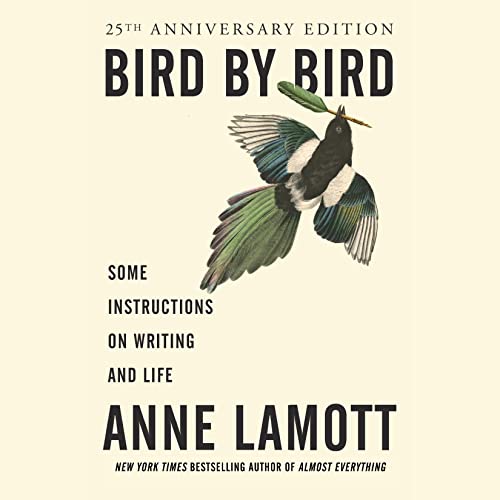
In this extremely popular book, Lamott unpacks the realities and fantasies of the writing process. Penned with shameless self deprecating humor and cringey details from childhood, she paints quite the snarky “imaginary gun to your head” to “make yourself stay at the desk.” Unlike Gardner, Bradbury, and Bickham, that “gun” isn’t bullet pointed or loaded with words like “verisimilitude,” “gusto,” or “sequels.” Instead, you’ll be “praying that you do not die before you can completely rewrite or destroy what you have written.”
Oh boy, writing sounds like so much fun…
"You are in print; therefore, you exist"
Lamott gives us a pretty clear wakeup call in both the Introduction and Chapter One, “Getting Started.” She warns that we must write for the joy of it, not the rewards we think may come with it. Because, in the end, those rewards are really just fantasies. Unless you have direct access to your father’s agent (which is a fantasy for any budding novelist), you’ll boil these fantasies down and you’re left with two questions: are you writing because you expect the well of validation when you see your book at the bookstore? Or are you writing because it fills you with purpose?
Anecdotes with a Side of Advice

Lamott makes it clear she’s not going to collect her strategies, number them, and print them at the end of each chapter. Woven throughout her anecdotes and pep talks (prompted by her students’ questions), you’ll find her suggestions. If you’re not paying attention, you may miss them. But that’s why you keep us around, right?
Write Same Time, Everyday.
Butt. In. Chair. We’ve heard this trick before. Bradbury dispenses this same advice and so does Julia Cameron. Now Lamott. It’s not rocket science…it’s harder. But show up, Lamott says, and your inspiration will learn to show up at the same time. All the cool kids are doing it. Science even supports it. So why aren’t you doing it? Tell me that! Why!?
Mine your Childhood

Unlike Gardner’s pedantic view that we shouldn’t write what we know. Lamott, like Bradbury, says to draw from the familiar well of childhood. Bradbury also teaches us to write a list of nouns and write short prose poem essays about each one. She says to start with childhood and write an exhaustive list of experiences. In other words, leave no stone in the garden of your life unturned.
Imbue your Character with your Neuroses
If you’re just like the rest of us (or just Renee), and you’re wracked with self doubt, self loathing, and negative self talk, Lamott says that’s just fine too. Dip into that psychological well of neuroses and give your character the same anxiety disorders.
And oh does Renee’s Well runneth over… someone should call a plumber already…
Continuing the (Process) Conversation
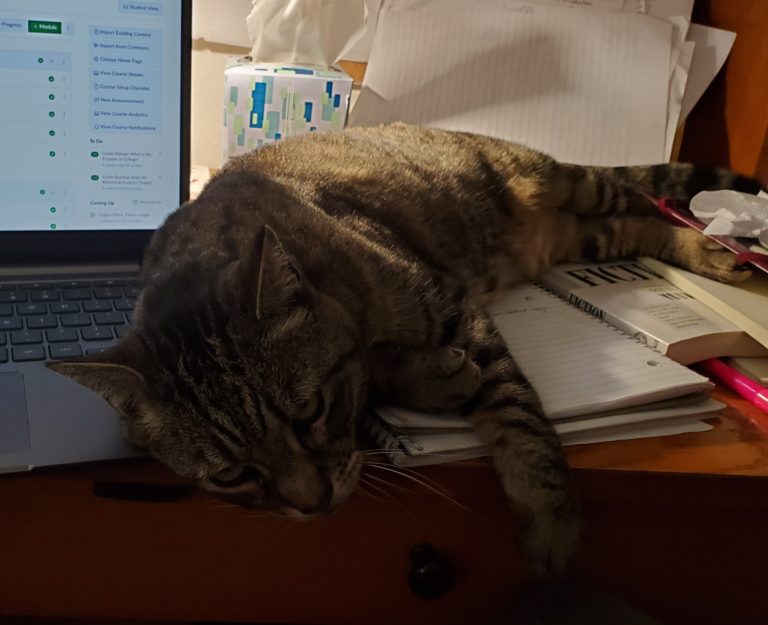
Google "the Writing Process." We dare you.
Google “writing process” and you’ll get hundreds of thousands of click bait articles, book coach websites, interviews on youtube, desperate posts on Reddit, and academic journals on brain science. How many blogs does it take to rehash “prewrite, draft, revise, publish” in a dizzying array of words (while changing a lightbulb)? Point being, it’s hard to write. Much like diet culture, the writing philosophy “butt in chair” is a multi-million dollar industry oozing in desperation. I mean, if it was easy to sit and write yourself to a million dollar NYTimes best seller, everyone would do it. In this Continuing the Conversation series, we’re celebrating the process of writing by letting successful authors speak for themselves (sans copyright violations).
The Art of Throat Clearing

One could use any number of verbs to aptly describe Lamott’s exercise this week: purging; scrapping; throat clearing; word murder. But if you’re already knee deep in your manuscript, that fantasy of you happily typing a perfect draft on the first go has been replaced with a graveyard of abandoned chapter outlines, freewrites, and sometimes whole manuscripts. I don’t know how many trees authors have collectively murdered over the years, but my guess it’s on par with the devastating cat/bird kill ratio.
Don’t think it’s realistic to write three pages a day only to keep one gem of a paragraph? Vendela Vida, author of five novels and co-founder of The Believer, once pitched all but 8 pages of a four hundred page completed manuscript. In the delightful Writer’s Confessions series, she tells us those eight pages became the beginning of her next book, which she kept and published.

And this didn’t just happen once, but twice. She ditched another manuscript, worth a year and a half of work and one hundred and fifty pages. Why? When she announced to her writing group she was “considering giving it up and starting afresh, nobody stopped me, so I knew that was a good sign that I should probably not continue working on that book.”
Before you despair and chuck your dreams of becoming a novelist off the proverbial bridge, Vida says this is not an act of giving up.
“I’m not saying I’m giving up the entire story of the book. I think I’ve figured out a lot of things through that draft.”
In other words, sometimes it takes four hundred pages to find eight really good ones. Or one hundred and fifty pages to just find the story. Oh those poor, poor trees…
Tribute: Anne Lamott

Anne Lamott, author of the seminal advice book on the process of writing: Bird by Bird, is the author of seven novels: Hard Laughter, Rosie, Joe Jones, Blue Shoe, All New People, Crooked Little Heart, and Imperfect Birds and twelve non-fiction books. Her books range in themes such as writing, addiction, motherhood, and Christianity. Her first novel, inspired by her father dying of brain cancer, was “a present to someone I loved who was going to die.” She even did a Ted Talk.




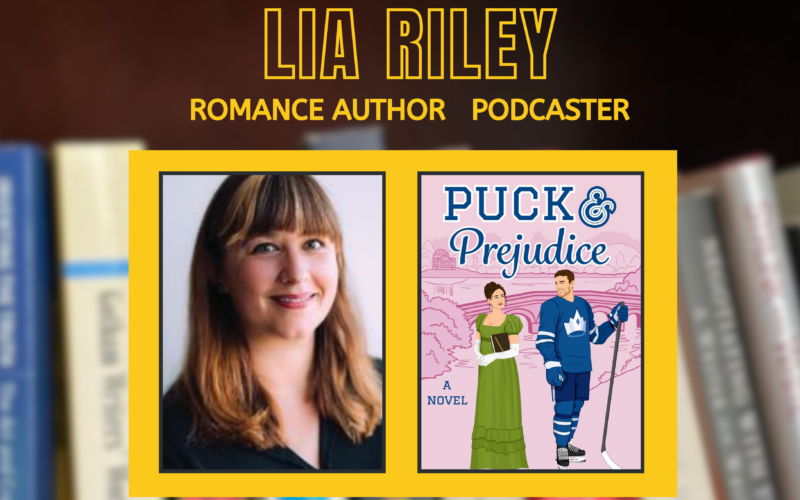
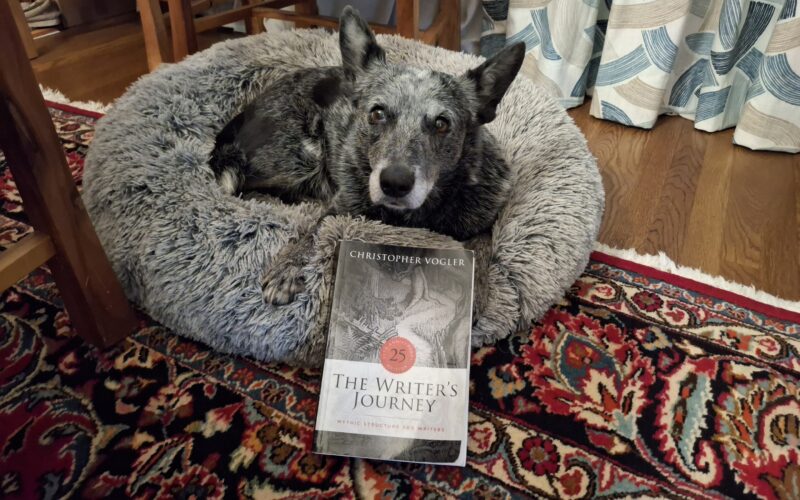
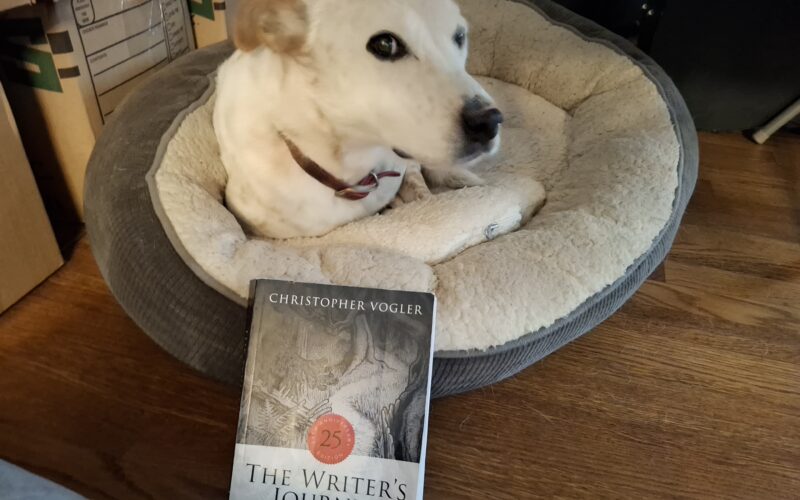
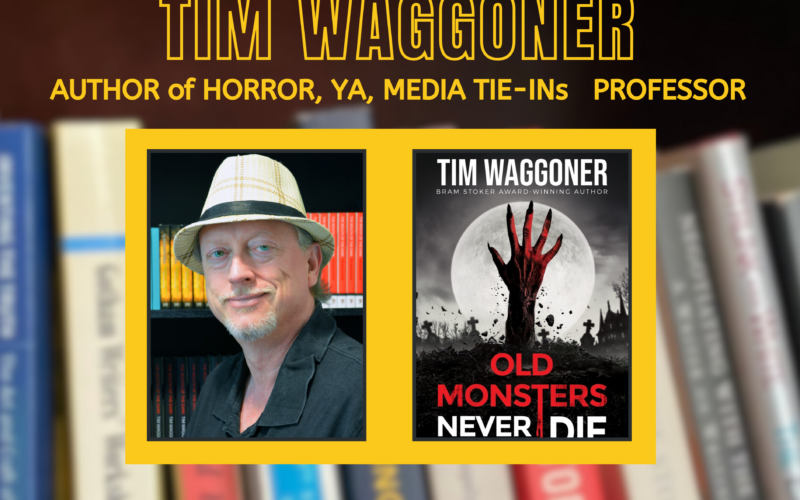



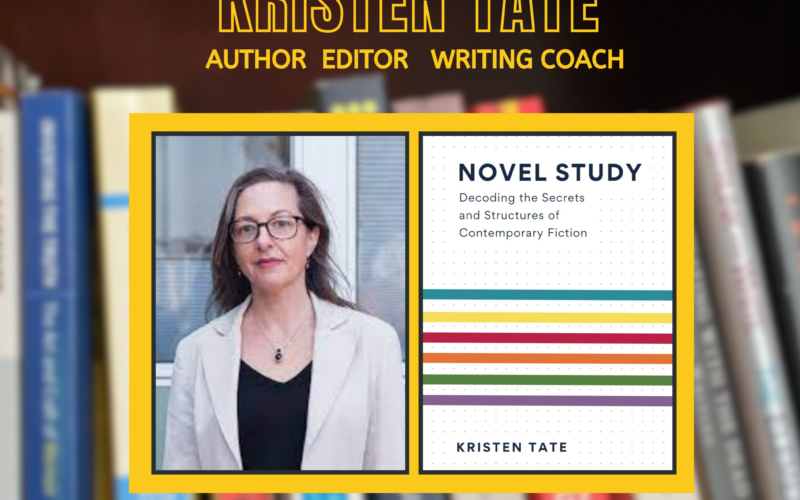
Not Your Usual Words to Write By: The AI Podcasting Challenge
Authors & AI SeriesEpisode 7: Not Your Usual Words to Write By: The AI Podcasting Challenge! Is nothing sacred? After exploring how AI might steal our writing jobs, we’re...